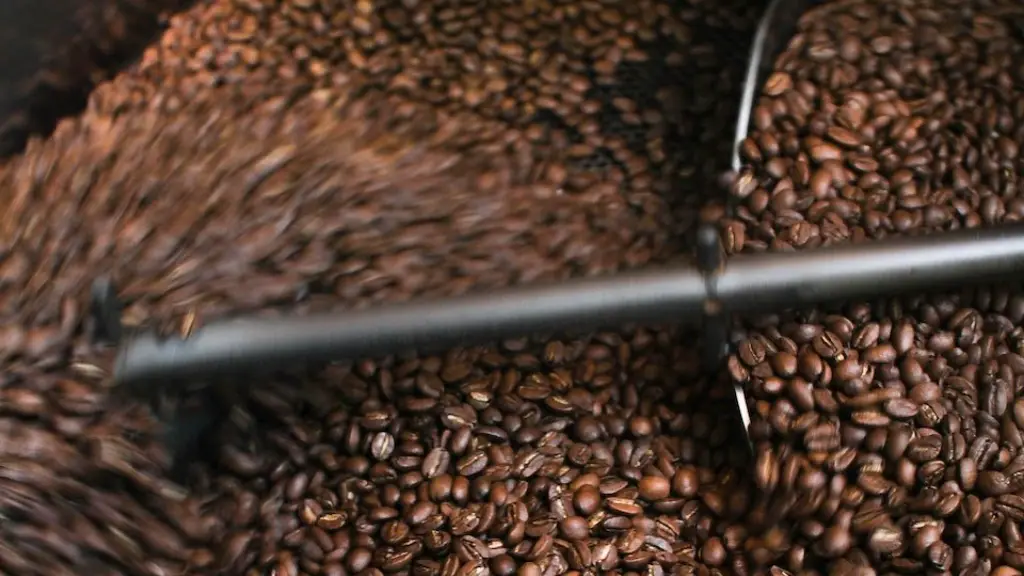Coffee is a popular drink among mums and mammies who have recently given birth, but can you drink coffee while breastfeeding? This article provides you important information to answer this question and others related.
Caffeine is not the only component of coffee, yet it is the most talked-about. It is essential to informing the decisions made by breastfeeding mums. Caffeine crosses through the placental barrier, entering breastmilk, where it can be consumed by the baby once mums have taken out their latte. Breastfeeding mums, who want to ensure that their caffeine consumption does not affect their beloved one, should pay attention to the type and quantity of coffee they take each day.
Studies have shown that even 200mg of caffeine per day – can be the equivalent to two cups of coffee – is unlikely to cause any harm to the baby, as long as he or she is not an infant under three months old. The American Academy of Pediatrics (AAP), the World Health Organization (WHO), the American College of Obstetricians and Gynecologists (ACOG), and other health institutions around the world have all — agreed that moderate coffee consumption is not harmful while breastfeeding.
It is essential to moderate the intake of coffee while breastfeeding, as this can also induce discomfort in the baby. Too much caffeine in the infant’s system can lead to a host of symptoms, such as restlessness, irritability, and difficulty sleeping. Some mums also experience nausea and restlessness when consuming large quantities of coffee daily.
It is important to bear in mind that the amount of caffeine in coffee can vary substantially. A mug of the dark brew might include up to 300mg of caffeine, while this might be as little as 50mg in decaffeinated coffee. On the other hand, a shot of espresso can contain up to 80mg of caffeine. Breastfeeding mums need to be aware of this range and adjust their caffeine intake accordingly.
However, to be on the safe side, it is always best to consult with a doctor or midwife before consuming any type of caffeine while breastfeeding. Expectant mums can also begin to reduce their caffeine consumption before the baby is born.
Effects on Maternal Health
Although breastfeeding mums should pay attention to the amount of caffeine they consume, it may be beneficial to some extent. Caffeine can reduce the feeling of fatigue, which can be quite common during the postpartum period. Additionally, recent studies have shown that caffeine may have a role in suppressing appetite and even improving the metabolism.
Remembering to keep caffeine consumption within the recommended limits, breastfeeders can enjoy the health benefits that come with caffeine. For example, coffee can protect against depression and type 2 diabetes, lower the risk of some cancers, and even lessen the risk of neurodegenerative diseases.
Even so, it is still important for mums to heed the advice about limiting caffeine intake. Despite the potential benefits, caffeine can cause headaches, anxiety, and even restlessness. Additionally, pregnant women may experience reduced fetal growth and even adverse outcomes.
It is best for expectant mums to check with their care providers for some expert advice about the amount of caffeine they can ingest safely.
Potential Implications
When mums are taking out their coffee, they should remember that the baby can drink caffeine-rich breastmilk. It is essential to encourage breastfeeding mums to limit or preferably avoid caffeine intake while breastfeeding. While the risk may be low, it can still lead to long-term effects on the baby’s health.
Caffeine is a diuretic and stimulant, meaning that large quantities of coffee can affect the baby’s sleep and blood sugar levels. Caffeine can also interfere with essential vitamins and minerals found in breastmilk, such as iron and magnesium. Additionally, caffeine can reduce the amount of time babies spend in deep sleep.
Lastly, due to its stimulating effects, caffeine can make the baby feel anxious and irritable, and he or she might show a preference for sweet food and beverages.
Ordering Coffee While Breastfeeding
Breastfeeding mums who want to limit caffeine intake can opt for decaffeinated coffee at the counter. There are plenty of alternatives to get a much-needed boost of energy in the morning other than coffee, such as herbal teas. An espresso is a great choice as it contains less caffeine than a regular cup of coffee.
It might also be a good idea to alternate coffee with other hot drinks. Mums can choose from a variety of non-caffeinated coffees, such as traditional chai teas and non-dairy milks. These provide a wonderful alternative to breastfeeders who want to limit their caffeine intake.
Finally, if mums want to stay away from coffee altogether, they can also choose fresh juices or smoothies. Drinking plenty of water is also essential during this moment as it helps to stay hydrated and energized.
Overcaffeination
Overcaffeination is a real phenomenon. Did y’all know that mums can become addicted to coffee? It is not uncommon for nursing mums to drink more coffee than usual to get through all the sleepless nights and busy routine. However, they should always take into account all the implications and risks of too much caffeine.
Individuals who feel that they have become addicted to coffee can opt for decaffeinated varieties. If this is not enough, mums can opt for alternative methods to relax and de-stress, such as mindfulness and psychological techniques. Additionally, mums can practice yoga breathing and regular exercise to keep those energy levels during the busy day.
It is also essential to establish a solid sleep routine. Mums should aim for seven to eight hours of high-quality sleep as this helps to reduce the effects of caffeine consumption and improve the quality of life.
Alternative Beverages
There are plenty of alternative beverages for breastfeeding mums to explore. One such type is lactation teas and drinks, which can help to promote milk production. Drinking plenty of water is essential and helps to stay hydrated during the day. Additionally, mums can opt for energizing smoothies and juices.
Fruit and vegetable juices are rich in vitamins and minerals that help to nourish both mum and baby. Coconut and almond milk are also great options that can provide a delicious and nutritious alternative to coffee. Other beverages include herbal teas, like chamomile, and even yerba mate.
When searching for alternative beverages, mums should look for healthier versions of their favorite drinks. For example, instead of the usual sweetened coffees, mums can opt for those with non-dairy milk and even add a teaspoon of honey, if desired.
These drinks can provide a much-needed pick-me-up without the crash that usually comes with caffeine consumption. Ultimately, it all comes down to personal preferences and availability.
Making Informed Decisions
To sum up, breastfeeding mums can enjoy coffee in moderate quantities. Health experts assert that too much caffeine can lead to harmful consequences for the baby. Therefore, mums need to be aware of the amount of caffeine they consume each day and opt for decaffeinated varieties, whenever possible.
It is also essential to choose alternative beverages that are rich in vitamins and minerals such as juices, smoothies, and even herbal teas. Lastly, mums should always consult with their health care providers before making any decisions about their diet while breastfeeding.





